Finding the ideal Short-Term Rental Japan solution is the first step to a successful stay. It is crucial in this country of captivating contrasts. This is where ancient tradition meets hyper-modern efficiency. Whether you’re planning a month-long sabbatical or a critical work assignment, this accommodation choice shines. It offers a perfect blend of comfort, convenience, and flexibility. Traditional hotels and complex long-term leases simply can’t match this.
The Fundamental Shift: Why STR Triumphs for Foreigners
The traditional Japanese residential rental market (Chintai) is notoriously rigid, designed for long-term stability (usually a 2-year least contract). It often presents significant roadblocks for international residents. This is due to the need for a Japanese guarantor. Additionally, there are high upfront fees and complicated administrative processes. Short-Term Rental Japan models were built to remove these systemic barriers. They offer simplicity, transparency, and minimal commitment, catering directly to the needs of the global, transient community.
Choosing a flexible housing choice involves weighing the immense benefits of convenience and low commitment. Yet, you must also consider some inherent disadvantages compared to traditional, long-term leasing.

STR Pros: Flexibility, Low Risk, and Convenience
The advantages of short-term rentals fundamentally revolve around making your entry into Japan easier and less expensive upfront.
- Exceptional Financial Accessibility: The first move-in cost for an short-term rental in Japan is drastically lower. It is often 75% to 90% less than a traditional lease. This is essential for temporary residents. They can’t afford to tie up vast amounts of capital in deposits and non-refundable fees.
- No Guarantor Needed: Unlike most traditional leases, short-term options usually waive the need for a Japanese citizen as a guarantor. They also remove the need for an expensive guarantor company. This removes a significant administrative and financial burden, making the process instantly accessible to newcomers.
- Minimal Upfront Costs: You avoid the astronomical initial fees often linked to long-term unfurnished leases. These fees can be equivalent to 4-6 months’ rent. Examples include non-refundable “Key Money” (Reikin) and huge deposits (Shikikin). This makes the move-in cost predictable and significantly lower.
- Contractual Freedom: STRs offer the ultimate escape from the standard two-year contract lock-in. Whether you need accommodation for 30 days or nine months, you pay only for the time required. This eliminates penalties for early termination typical of long-term leases.
- Instant Habitability: Since all furniture, appliances, and utilities are set up before you arrive, there is zero downtime. You can land at the airport, get your keys, and start working or studying the very next day.
STR Cons: Higher Monthly Cost and Limited Customization
The upfront cost is lower. Still, the monthly operating cost of an STR is generally higher. This is to cover the furniture, utility management, and administrative overhead.
- Higher Monthly Rent: The most significant drawback is the price premium. On a month-to-month basis, the rent for a fully furnished, all-inclusive STR is higher. It can be 20% to 50% more than the base rent of a comparable unfurnished, long-term apartment.
- No Customization or Personalization: STRs, especially Monthly Mansions, are standardized. You cannot paint the walls, change the flooring, or replace the furniture to your liking. Tenants who highly value interior design and personal space will find these limitations restrictive.
- Fee Prepayment Requirement: Unlike traditional monthly rent, STRs often require the entire duration’s rent and fees (e.g., three months’ total) to be paid upfront upon signing. This demands having a large sum available at the beginning of the contract.
Financial Clarity: A Detailed Cost Breakdown (STR vs. Traditional)
The monthly rent for an STR is slightly higher than a traditional unfurnished apartment. Yet, a detailed cost comparison reveals immense savings on the initial move-in costs. This makes it the far superior financial choice for stays under one year. We highly recommend expats analyze the total initial outlay, not just the monthly fee.
Scenario: Renting a ¥150,000/month apartment in Tokyo
| Cost Item | Short-Term Rental (STR) | Traditional Lease (Long-Term) | Notes |
| First Month’s Rent | ¥150,000 | ¥150,000 | |
| Security Deposit (Shikikin) | ¥0 – ¥50,000 (Refundable) | ¥150,000 – ¥300,000 (1-2 months’ rent) | STR deposit is often lower/waived. |
| Key Money (Reikin) | ¥0 | ¥150,000 – ¥300,000 (1-2 months’ rent) | Non-refundable. STR eliminates this. |
| Guarantor Fee/Company | ¥0 | ¥50,000 – ¥75,000 (0.5 months’ rent equivalent) | |
| Agency Fee (Chukai Tesuryo) | ¥0 | ¥150,000 (1 month’s rent) | |
| Furniture/Appliance Buy | ¥0 (Fully Furnished) | ¥300,000 – ¥1,000,000 | Cost of purchasing and setting up everything. |
| Total First Outlay | ¥150,000 – ¥200,000 | ¥990,000 – ¥2,000,000+ | STRs are dramatically cheaper to start. |
Exploring the Diverse Ecosystem of Short-Term Rental Japan
The market offers three primary, legal alternatives to traditional long-term leases. Each is suited for different lengths of stay, budgets, and needs. Understanding the contractual and operational differences among these options is crucial for making the right choice upon arrival in Japan.
Monthly Mansions / Weekly Mansions (The Core Solution)
These are the most popular and practical choice for anyone planning a stay from one month up to one year. They are self-contained, fully furnished apartments offered on flexible contracts, operating legally under specialized residential agreements.
- Key Appeal: Total independence, private facilities, and quick move-in. They operate like a hotel. Yet, they offer the privacy of an apartment. This setup makes them highly suitable for business professionals and couples.
- Contract Feature: The contract is typically for a set duration, with all fees (rent, cleaning, utilities) paid upfront. This offers financial certainty for the length of your stay.
Share Houses (Budget & Community Focused)
Share houses involve renting a private bedroom within a larger property, like a house or building. Tenants share common areas like the kitchen, living room, and bathrooms with other occupants. This choice is popular for its affordability and immediate social integration.
- Key Appeal: The lowest cost and lowest starting barrier to entry. Rent and first fees are significantly cheaper than even Monthly Mansions, making them perfect for students and young professionals. They also offer an immediate community environment.
- Contract Feature: Contracts are typically month-to-month or a fixed short term of 3-6 months. They offer excellent flexibility. There are no massive move-in costs.
Minpaku (Private Lodging / Vacation Rentals)
These are private homes, apartments, or villas rented out to tourists, usually booked via international platforms. While great for short holidays, they are generally not suitable for expatriate life due to legal restrictions on duration.
- Key Appeal: Ideal for very short stays. These can range from a few days to a few weeks. It is excellent for finding unique traditional Japanese accommodations, especially in tourist zones.
- Regulation Note: Under Japan’s Minpaku Law, these properties are usually restricted to a limit of 180 rental days per year. They are not intended for residents with a visa. These properties are also not meant for those needing long-term stability.
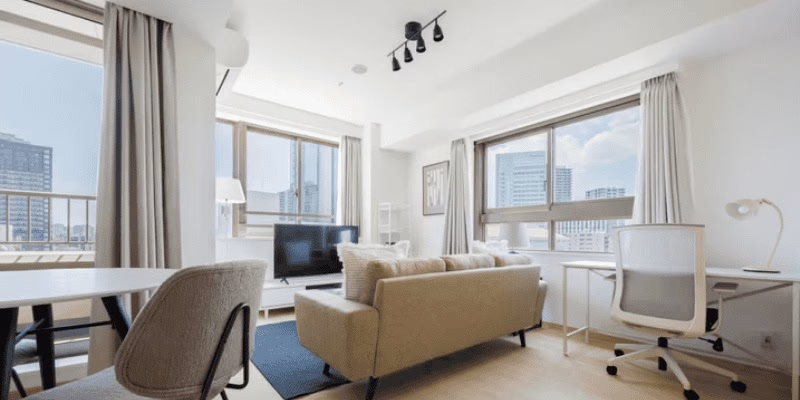
Zeroing In on the Tokyo Market: Finding Your Flat Tokyo
Tokyo’s sheer size means neighborhood choice is critical to optimizing your commute and lifestyle. When foreigners choose a flat Tokyo location, they should focus on transit access. They should also consider the local vibe and proximity to their work or social hubs.
- Shinjuku: The Hub of Activity: Shinjuku is defined by its massive, highly efficient station. It provides unmatched transport links. The area offers a balance of business and entertainment. This area is ideal for professionals who need fast, convenient access across the entire Kanto region.
- Shibuya: Culture, Tech, and Modern Living: The center for youth culture, technology, and fashion, Shibuya has a vibrant, international energy. It is perfect for Digital Nomads, creatives, and young professionals who want an inspiring and trendy social scene.
- Minato: Exclusive and Expat-Oriented: Wards like Roppongi and Azabu-Juban offer high-end residences, diplomatic presence, and a sophisticated, quieter urban experience. This area is preferred by corporate executives and families who value luxury and convenience.
Critical Considerations and Contractual Pitfalls
While short-term rentals greatly simplify the move-in process, they work under different contractual frameworks than traditional leases. Understanding the unique terms of these agreements is essential to avoid surprises during your stay.
The Prepaid System
Short-term rental contracts, particularly for Monthly Mansions, run on a pre-paid model. You need to budget for the contract fee to be paid in full upfront. This includes the rent for the entire duration, cleaning fees, and first utility costs.
Be prepared to pay a lump sum upon contract signing. This is the trade-off for eliminating Key Money and large security deposits.
Cancellation and Termination Fees
Short-term contracts offer flexibility. Still, they are generally based on a fixed term once the contract is signed and paid for. Early termination can result in the forfeiture of rent already paid.
Confirm the break clause/refund policy before signing. If you cancel the contract halfway through the duration, clarify if you will get a refund. This refund is for the unused, pre-paid part of the rent.
Utility Fees
Most Short-Term Rental Japan units advertise all-inclusive utilities, which simplifies monthly budgeting considerably. Still, this convenience often comes with a specific usage limit.
Check the exact terms of the utility policy. If you exceed the set monthly allowance (e.g., typically a fixed limit for electricity and gas), you will be charged the surplus separately, which is common during extreme summer or winter months.
The No-Inspection Clause
There is a continuous high turnover of tenants in the flexible rental market. As a result, it is standard practice for providers to not allow pre-move-in inspection (Naiken).
You rely heavily on the photos and floor plans provided online. Always choose reputable providers. They should offer high-quality, precise images and clear video tours. Check for transparent details about the property’s age and condition. This ensures the unit meets your expectations.
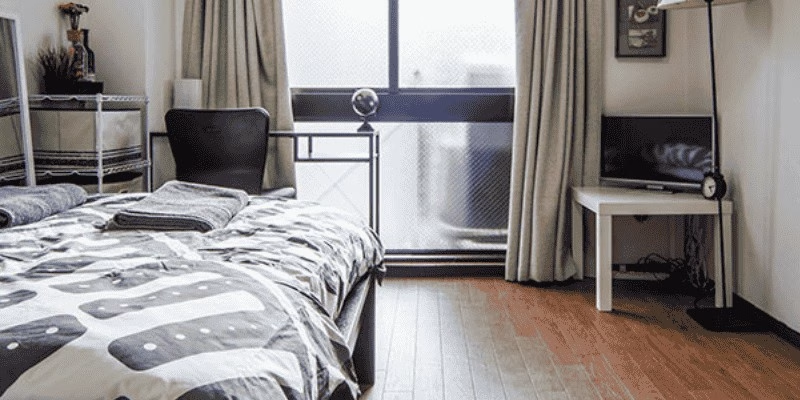
The Arealty Advantage: Your Comprehensive Property Solution
In this complex market, a trusted partner who understands the needs of the international community is essential. Arealty specializes in supporting the entire expat housing journey. They simplify access to all three types of legal housing in Japan.
The first stages of settling in Japan need immediate, low-commitment solutions that Arealty provides efficiently. This minimizes stress and high costs linked to traditional renting.
- Flexible STRs and Share House Entry: Arealty offers guaranteed, fully compliant Monthly Furnished Apartments. These apartments guarantee the fastest move-in. They also connect tenants with well-managed share houses for budget-conscious living.
- Long-Term Chintai Guidance: Arealty acts as a dedicated multilingual agent to guide and negotiate the complex 2-year traditional lease process. They specialize in helping clients overcome the significant guarantor, income, and language barriers presented by Japanese landlords.
Arealty focuses on multilingual support. The company cuts through bureaucratic friction. These efforts guarantee that your housing transition is stress-free and successful. This applies whether it’s short-term or long-term.
Conclusion
The rise of dedicated, foreigner-friendly rental platforms has fundamentally transformed the experience of finding a temporary home in Japan. No longer is the process bogged down by “key money,” guarantors, and language barriers.
You might need a chic studio in Shibuya. Alternatively, you want a convenient flat Tokyo base for corporate travel. The Short-Term Rental Japan market has options. You also choose a budget-friendly room in a share house. These rentals provide the comfort and simplicity required for a truly seamless and enjoyable experience. By choosing a dedicated, furnished, and all-inclusive choice, you skip the hassle. You focus on what truly matters: immersing yourself in the fascinating culture and vibrant life that Japan has to offer.
What are you waiting for? Your next great Japanese adventure starts with securing your perfect short-term home today.

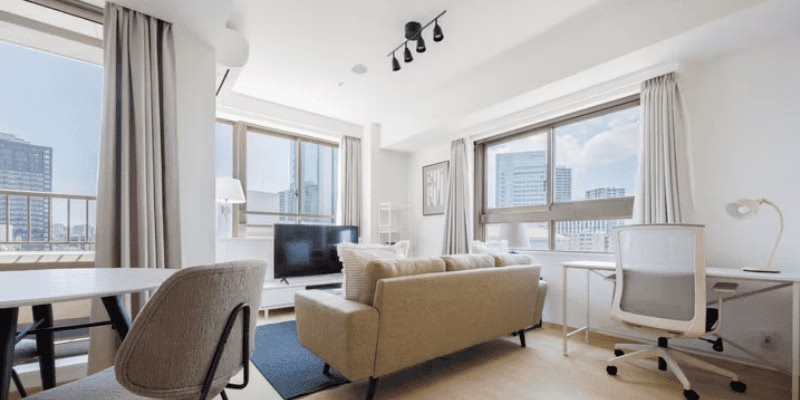

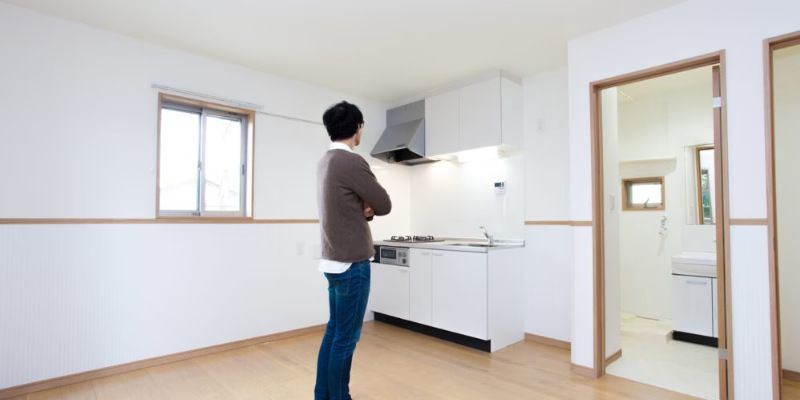
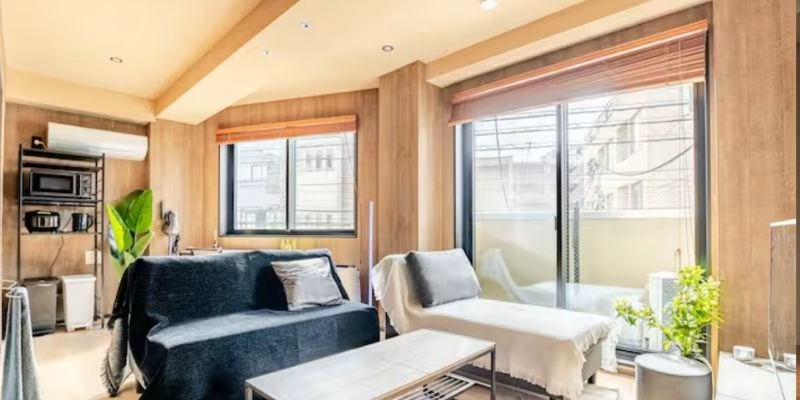

Leave a Reply